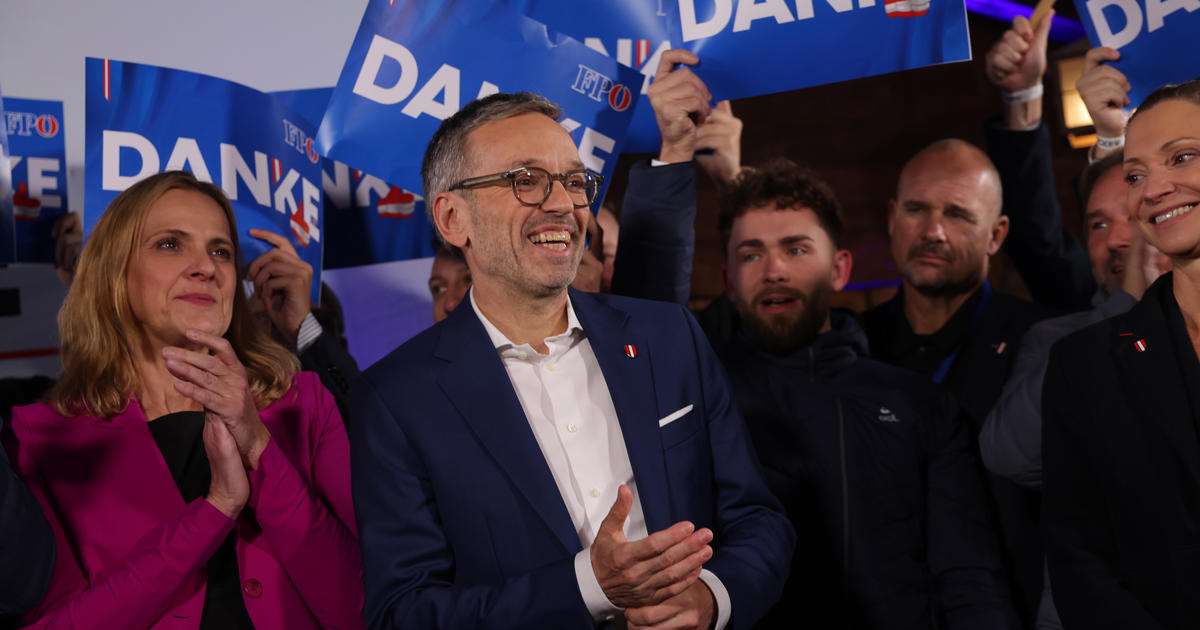Austria’s recent parliamentary elections witnessed a significant shift in the political landscape, with the far-right Freedom Party (FPÖ) securing a decisive victory, marking their first win since World War II. This unexpected triumph, under the leadership of Herbert Kickl, who secured 29.2% of the vote, surpasses both the center-right Austrian People’s Party (ÖVP) and the Social Democrats (SPÖ). This result reflects a broader European trend of rising support for nationalist and anti-immigration parties, fueled by public discontent stemming from economic anxieties like inflation, the ongoing war in Ukraine, and concerns about rising migration. The FPÖ’s campaign, characterized by its staunch anti-immigrant stance and nationalist rhetoric, resonates with a segment of the Austrian population increasingly frustrated with the political establishment. This win necessitates a deeper examination of the factors contributing to this surge in far-right popularity and its potential implications for Austria’s future.
The Rise of the Far-Right in Austria
FPÖ’s Platform and Messaging
The FPÖ’s campaign heavily emphasized a “Fortress Austria” approach, promising to drastically restrict immigration through border controls and policies aimed at forcing non-Austrian nationals to leave the country. This hardline stance on immigration, coupled with criticisms of Austria’s involvement in international sanctions against Russia, clearly resonated with a considerable portion of the electorate. Kickl’s ambition to become “Volkskanzler,” a term historically associated with Nazi Germany, further fueled concerns among many. The party cleverly tapped into existing anxieties surrounding economic hardship, the war in Ukraine, and migration, skillfully framing itself as a protector of Austrian national identity and interests. Their messaging often bypassed nuanced debate and focused instead on simplistic solutions to complex problems, a tactic which has proven effective in several European countries experiencing similar political shifts.
Economic Anxieties and Public Discontent
The FPÖ’s success cannot be divorced from the prevailing economic anxieties within Austria. Rising inflation and the ongoing economic consequences of the war in Ukraine have undoubtedly contributed to a sense of unease and uncertainty among the population. Many feel that the established political parties have failed to adequately address their concerns, creating a fertile ground for the FPÖ’s populist message promising radical change and swift solutions. The party effectively capitalized on this disillusionment, framing itself as an alternative to the mainstream parties perceived as failing to represent the needs and concerns of ordinary Austrians. This skillfully orchestrated narrative of victimhood and neglect effectively bypassed criticisms of the party’s extreme policies.
The Implications of the FPÖ’s Victory
Coalition Challenges and Governance
Despite their electoral success, the FPÖ faces significant challenges in forming a governing coalition. Both the ÖVP and the SPÖ have explicitly ruled out any cooperation with the far-right, leaving the FPÖ in a difficult position. The party’s ability to successfully navigate these political hurdles and form a working coalition will determine its capacity to translate its electoral victory into concrete policy changes. The lack of willingness from other parties to collaborate highlights the deeply divisive nature of the FPÖ’s ideology and policies within the Austrian political establishment.
Domestic and International Consequences
The FPÖ’s electoral success has significant implications for both Austria’s domestic politics and its standing on the international stage. The party’s anti-EU sentiment and its skepticism toward international sanctions against Russia raise questions about Austria’s future alignment within the European Union and its role in international affairs. This uncertain trajectory introduces concerns about the stability and predictability of Austria’s political landscape, potentially affecting its relationships with neighboring countries and international partners. The far-right’s ascension also signals a concerning shift towards nationalism within the European context.
Comparison with Other Far-Right Movements in Europe
Parallels with the AfD in Germany
The FPÖ’s rise mirrors similar trends observed in other European countries, notably Germany. The Alternative for Germany (AfD), a similarly far-right party, has experienced notable gains in recent state elections, particularly in rural areas. Both the FPÖ and the AfD capitalize on populist rhetoric, employing similar strategies to appeal to voters disillusioned with mainstream parties. This pattern of increasing support for far-right parties across Europe suggests an underlying trend of anti-establishment sentiment and growing concerns about immigration, the economy, and the established political order. The experiences of both parties, particularly their struggle to form coalitions despite electoral success, highlight the limitations of purely populist appeals.
Broader European Context
The electoral gains by far-right parties across various European nations underlines the prevalence of shared concerns regarding issues like immigration, economic stability, and the role of the EU in individual countries’ national identities. This isn’t simply confined to Austria or Germany; many European nations are experiencing the rise of similar movements. It’s a critical time to understand how political dissatisfaction manifests itself in differing political contexts and to examine the common threads that lead to the rise of nationalist and anti-immigration sentiment. This cross-national analysis is important in assessing future trends and potential responses to mitigate far-right advances throughout Europe.
Take Away Points:
- The FPÖ’s victory in Austria signals a significant shift in the country’s political landscape and reflects a broader European trend of rising far-right support.
- The FPÖ’s anti-immigrant and nationalist platform resonated with voters expressing dissatisfaction with established parties and anxieties about economic and geopolitical issues.
- The party faces significant challenges in forming a governing coalition, highlighting the deeply divisive nature of its ideology.
- The FPÖ’s success has implications for Austria’s domestic politics, its relationship with the EU, and its role in international affairs.
- The rise of the FPÖ echoes similar trends seen in other European countries, particularly Germany’s AfD, and points to a wider pattern of growing anti-establishment sentiment.




